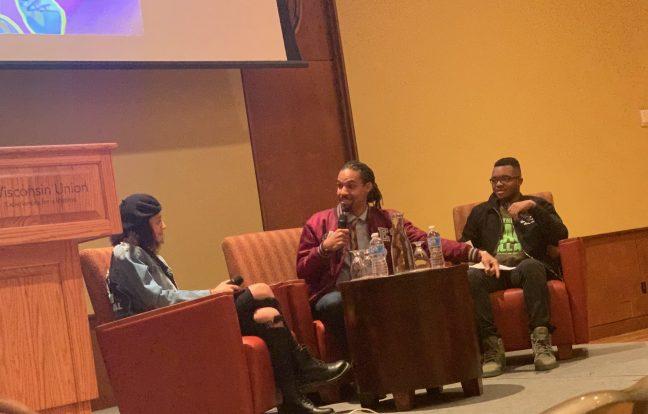As a part of the 2020 Black History Month events at the University of Wisconsin, Emmy-award winning producer Pierce Freelon spoke at the keynote event about Afrofuturism. Afrofuturism refers to the reimagining of Black existence in 2020 and future years.
Freelon is a professor, director, musician and millennial politician. He founded a digital maker space known as Blackspace in North Carolina, and co-founded the PBS web series “Beat Making Lab” which won the Best Video Essay award for an episode at the 2015 Daytime Emmy Awards.
Freelon defined Afrofuturism as Black people shaping the future. He referred to a long line of Black people who have been doing Afrofuturistic work not just in this generation, but from generations past, such as Harriet Tubman and Rosa Parks.
Freelon said being an Afrofuturist requires imagination, creativity and a connection to their ancestors to manifest something different. Freelon mentioned many visionary leaders today are Afrofuturists, such as Janelle Monáe as he praised her film Dirty Computer for its intersectionality in the way Monáe approaches radical feminism.
“[Art] is a meditative practice, and we need artists, we need creatives to help us envision a different future,” Freelon said. “There is no Black radical movement, there is no Black moment and Black liberation struggle where art wasn’t an important part of the movement.”
Freelon is running for the North Carolina State Senate, and consequently mentioned the Afrofuturist ideals he draws into his campaign and ideals. He talked about the West African saying “san kofa” which means “go back and get it.” Freelon said the idea of understanding the past in order to move forward really guides his policy principle.
Freelon said he was inspired to become involved in politics after Donald Trump won the 2016 presidential election.
Freelon talked about reforming criminal justice policies, particularly decriminalizing marijuana in relation to prison industrial complex. He said though all races of children use marijuana at the same rate, Black people are arrested and charged at a rate of more than 10 times the percentage of the population of Black people .
Freelon said this issue has given many Black people a felony on their record, making them ineligible for food stamps, grants, jobs, education or even the right vote.
“It’s a way to use the systems that are currently in place — the prison industrial complex and the law enforcement community — to continue to stigmatize being black without having to say it has anything to do with your skin color,” Freelon said.
Freelon said there should be more Black representation in pop culture, and more Black films created by Black people, starring Black actors. He said in the Marvel universe, it has taken over 20 Marvel films to come up with a Black superhero — Black Panther.
“As far as Afrofuturism is concerned, we need creative solutions to be able to expose some of what we’re experiencing,” Freelon said. “Whether it’s music, or song or media, sometimes that has a powerful way of impacting folks.”


